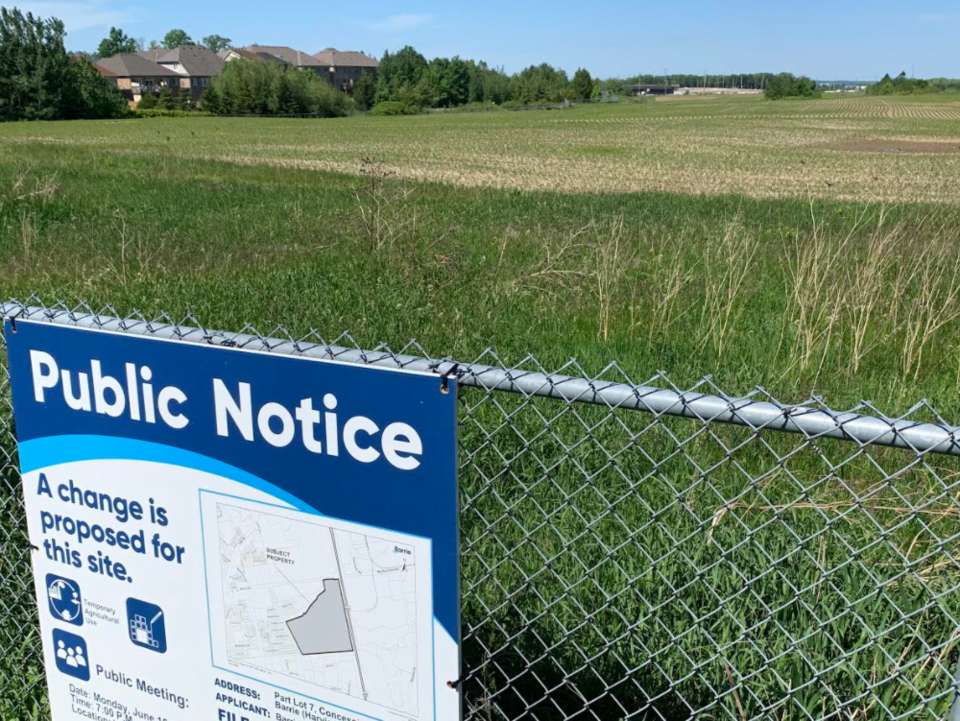The Ford government's update of Ontario's provincial planning statement makes significant changes, including some that cities, experts and advocacy organizations were spooked by when they were proposed in up-for-consultation drafts.
Their worries are now set to become reality after Municipal Affairs and Housing Minister Paul Calandra unveiled the new version that'll become the law of the land on Oct. 20.
Cities must adhere to the guidance document when planning for current and future growth.
It replaces the older iteration and the Growth Plan for the Greater Golden Horseshoe. The former of the two previously separate policies applied to the whole province, while the latter was specific to the Golden Horseshoe region, where most of the population lives.
"When you've got two documents, you're trying to look at the language in both of those and say, 'well, do they both align? How do I develop and plan communities based on both of those documents?' When you merge it into one, you only have to look at one document, so it's easier for everybody," said Andria Leigh, incoming chair of the Ontario Professional Planners Institute.
"But again, we have 444 municipalities, some in the Greater Golden area, where there's lots of growth — northern Ontario, not as much. So having one document that applies everywhere will be a bit of a challenge in terms of how that's interpreted and how it's applicable," she said.
The main concern was the new version would make it easier for cities to expand their settlement areas, which could threaten rural and agricultural lands, submissions to the environmental registry show.
Previously, cities could only expand through a process called a municipal comprehensive review that happened every five years. To expand, cities had to meet a list of specific criteria showing how the growth would be accommodated by existing or planned infrastructure. Further, it had to be approved by the province.
After the new plan takes effect, they'll be able to expand settlement areas at any time and won't have to meet as strong of criteria to do so, nor will it have to be approved by the province. Landowners will also be allowed to apply for boundary expansions when previously only municipalities had that authority. Thanks to another legislative change made in June, boundary expansion decisions can now be appealed to the Ontario Land Tribunal, whereas they previously weren't.
"Killing the Growth Plan for the Greater Golden Horseshoe kills what are called settlement area boundaries, which are the main barrier that has protected farmland and wildlife habitat from sprawl and destruction over the past 20 years," said Phil Pothen, a land-use planning lawyer and Ontario program manager at Environmental Defence.
Elgin County Warden Ed Ketchabaw wrote about the same issue, from the municipality's perspective, in a letter to the provincial government.
"Our council remains concerned that the county and its local municipalities will be faced with increased pressures to expand our urban boundaries by development interests while our local municipalities continue to struggle providing servicing for our existing urban land base," he wrote.
Several other municipalities expressed similar concerns.
"The proposed changes that would permit settlement area boundary expansions outside of a municipal comprehensive review process are concerning and may result in the premature or unjustified expansion of rural settlement areas into rural or agricultural lands despite adequate land supply to accommodate growth and development within existing settlement area boundaries," Owen Sound planners said in a report to council.
Opening expansions to appeals "will make holding fast to boundaries more difficult," Oakville planning staff wrote in a report to city council.
The worry isn't just that developers can now request expansion, but also that the criteria for expansion are more lax.
The new version has weaker language because it says municipalities should consider rather than demonstrate "whether new settlement areas or settlement area boundary expansion compromise prime agricultural or specialty crop areas," according to a letter sent by the National Farmers Union (NFU).
"We recommend that the government return to the original language that requires planning authorities to 'demonstrate' that 'there are no reasonable alternatives which avoid prime agricultural areas,'" the NFU wrote.
Pothen said that the concern about easier boundary expansion leading to more sprawl is exacerbated by a reduced emphasis on adding density.
"Repealing the growth plan means that going forward, municipalities aren't going to be required to build any significant amount of homes within their existing built-up areas," he said.
The Growth Plan mandated cities accommodate at least 50 per cent of new growth in existing built-up areas. That prescriptive language wasn't carried over to the new version. The new version, however, does include minimum targets for density along major transit routes.
"The removal of required intensification targets and density targets, together with a more flexible approach to settlement area expansions will likely lead to more prime agricultural land consumption," Wellington County said in its submission.
Hamilton planners said the change will make the province's housing woes even worse.
"The proposed weakening of policies requiring certain provincial levels of intensification would decelerate rather than accelerate new housing construction, impacting both the city's and province’s goal to increase housing supply," the city's submission said.
Calandra's office did not respond to a request for comment by deadline.




